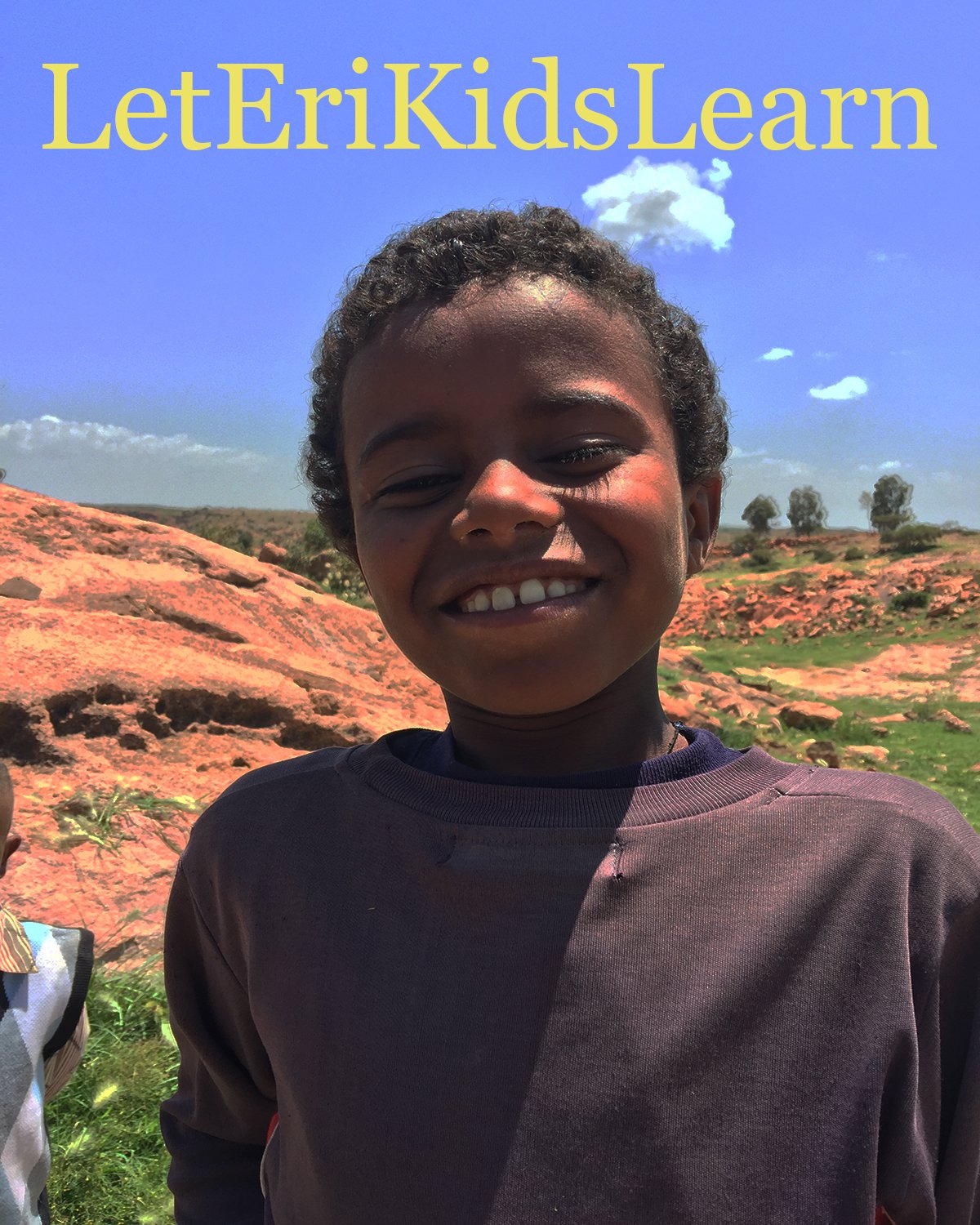Led by End High School in Sawa and in partnership with EriSat, the ‘Let Eri Kids Learn’ or #LetEriKidsLearn educational program aims to provide a sustainable, world class education to children inside of Eritrea by offering classes through satellite TV stations and other technologies.
On April 1, 2020, the Eritrean Ministry of Information announced that their “High-Level Task Force?” (HTLF) would implement a 21-day countrywide lockdown beginning April 2. The lockdown was put in place in response to the COVID-19 pandemic as a method to help stop the spread of the virus. The initial guideline, which has now been in place for close to a year, attempted to cover many aspects of Eritrea’s economic and infrastructural needs but disregarded one major area of importance, the education system.
The fact is, from April 2, 2020, to now, not a single one of the follow-up announcements from the HLTF (1, 2, 3, and 4) would mention anything about schooling or changes to the education system under the new COVID-19 guidelines. This would place a huge burden on families and loved ones to find ways to educate their children while under the ‘stay at home’ lockdowns. It’s very likely that a great majority, if not all, of the children under lockdown, are not getting the proper education they need. We are unsure of exactly how bad circumstances on the ground are. Here’s the message the HTLF had for families back home:
“[This guideline] will entail considerable hardships on the daily lives of citizens. But considering the gravity of the threat that the nation and the people are facing from this pandemic, there is no option other than overcoming it through our characteristic fortitude, resilience and sense of compassion and solidarity. It is therefore incumbent on all of us to implement the current and previous Government guidelines with keen awareness and earnest commitment.”
A Strategy For Change
Research shows that interrupting children’s education has a long-lasting negative effect on their academic performance. Eritrean children have been out of school for the last 11 months without alternative education. This left us with good reason to believe that Eritrea’s HLTF had no intention to resolve the educational system issues. The current guidelines could’ve lasted many more months, if not years. These circumstances forced diaspora Eritreans to develop alternative education solutions to the HTLF’s nonexistent educational policies.
#LetEriKidsLearn#Eritrean kids have been out of school for the 11th month now!!! Research shows that interrupting children's education has a long-lasting negative effect on their academic performance. pic.twitter.com/yKSsZertYA
— EndHighSchoolInSawa (@EndSchoolInSawa) March 2, 2021
Led by End High School in Sawa and in partnership with EriSat, the ‘Let Eri Kids Learn’ or #LetEriKidsLearn educational program aims to provide sustainable, world-class education to children inside Eritrea by offering classes through satellite TV stations and other technologies. The initial courses offered for grades 9 to 12 are in the subjects of Mathematics, Science, and Technology. Future classes will be provided at the elementary and middle school learning levels.
Eritrea’s Response?
On March 2, a day after the initial launch of the educational program, Eritrea’s Minister of Information (MOI) Yemane Meskel made this announcement on his Twitter page, giving great praise to Eritrea’s education system:
Good Read: #Eritrea’s effort to enhance mother-tongue based education
“UNESCO has named Eritrea as a successful model for implementing a mother-tongue based and multilingual education system”https://t.co/iWUp46IwI7 pic.twitter.com/7NgEE1VK76— Yemane G. Meskel (@hawelti) March 3, 2021
After one whole year and no remote learning solutions, on March 22, Eritrea’s MOI made this follow up tweet highlighting their recent change to the K through 10 schooling system:
#Eritrea:Ministry of Education announced today that all schools - from Kindergarten to High School - will reopen on April 1st next month. Easing of restrictions is prompted by imperative to ensure academic continuity & will be undertaken under robust/bolstered preventive measures pic.twitter.com/RU44ySx5Mp
— Yemane G. Meskel (@hawelti) March 22, 2021
It became clear that these recent over-reactions by Eritrea’s Ministry of Education (MOE) were caused by the action of the EHSS and EriSat teams. Eritrea’s MOE was called out, an outside, alternative solution was provided, and the pressure, and likely embarrassment, was enough to cause a change within the school system.
Opening schools and allowing K to 10 students back into the classroom doesn’t seem like the best solution at this time as Eritrea has yet to announce the securing of any COVID-19 vaccines. The fear now is that spread of the coronavirus will increase and affect parents and loved ones of students returning home from school. A remote learning method is still a solution the MOE needs to examine further.
How Can You Get Involved?
Again, this “from the people, to the people, by the people” educational program comes from passionate diaspora Eritreans. It is out of sheer necessity that these organizations have come together to help children in Eritrea learn since the government of Eritrea seemingly shares no alternative strategies.
If you’d like to get involved, share the educational program guide with family and friends here and back home. Use the hashtag #LetEriKidsLearn to help spread awareness around the cause. If you’d like to volunteer with their team, contact them here.

